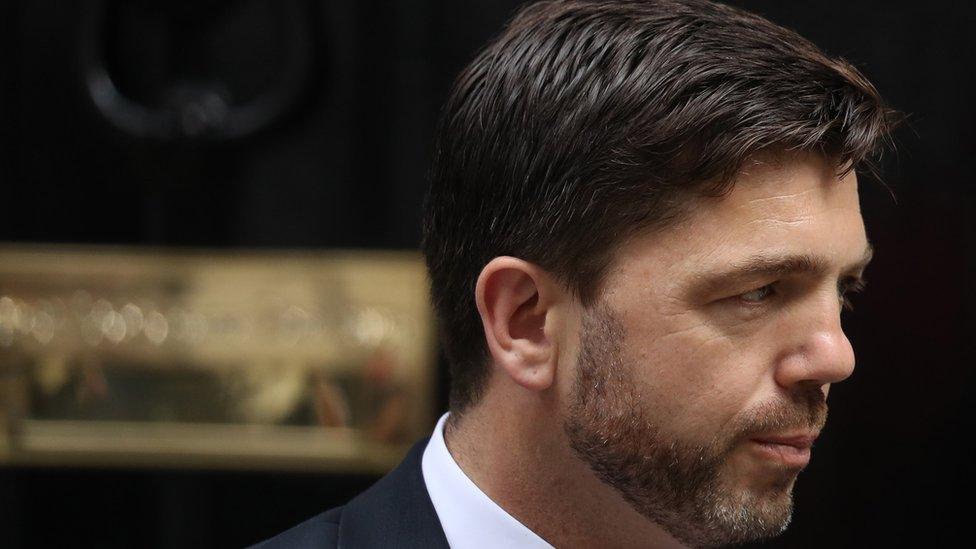Curious George turns the taps from austerity to tax cuts
- Published
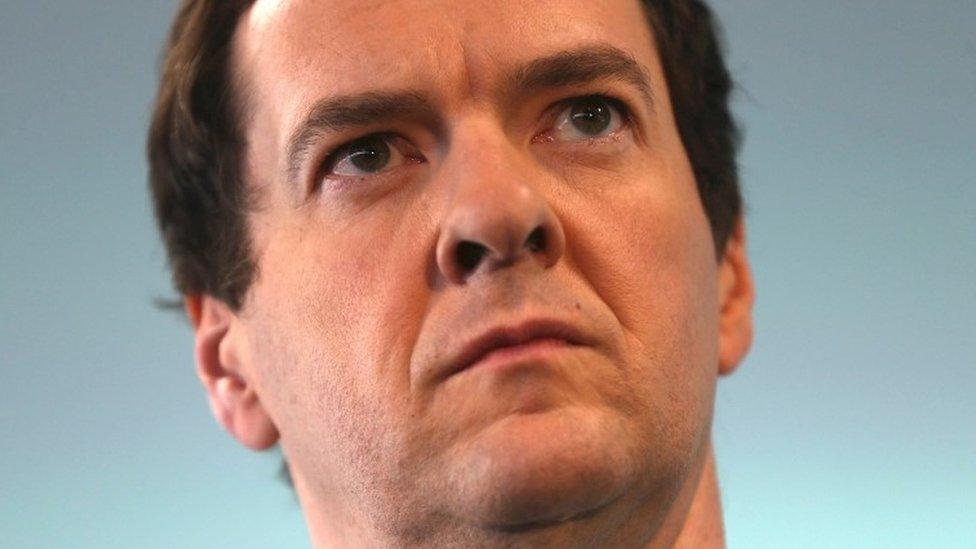
George Osborne is now talking about a tax cut
There is still barely a question about the impact of Britain's exit from the European Union to which the answer is clear. On the big questions, even the options look unclear.
What we know for sure is that uncertainty is stalking the British economy. That's expected to mean business investments being stalled, and consumers postponing their bigger spending decisions.
And that's after things were already slowing up. More evidence of that was published on Monday from the Federation of Small Businesses in Scotland, and from the Markit survey of the UK construction industry.
But it's no longer just a sense of uncertainty. Businesses are now having to take action to avert some big problems.
Standard Life Investments, based in Edinburgh and a giant of asset management, has hit the emergency button on its UK property fund.
Trading has been suspended, due to high number of investors wanting to redeem their stakes in the fund. To protect those still in it, and because property assets are unusually slow to liquidate, SLI is acting to stop a run on the fund.
It's the first time we've seen that since being pitched into the financial crisis nearly eight years ago.
Under-cut
So in the face of uncertainty and high expectations among economists of an economic slowdown - if not recession - George Osborne has an idea.
He is Chancellor of the Exchequer, yet this is not really a policy. It's more of an aspiration and a signal to investors that it would be nice if corporation tax were to be cut from 20% of corporate profits to, at most, 15%.
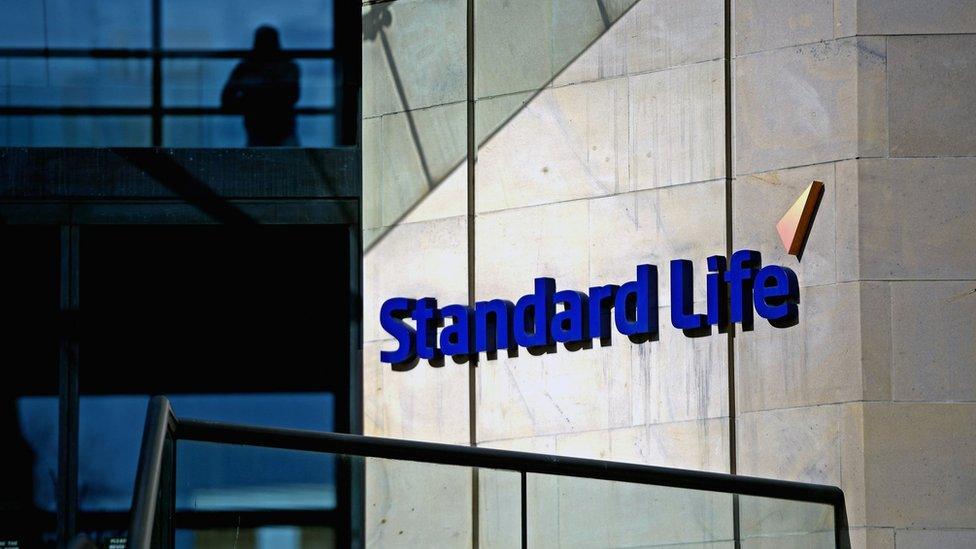
Trading on Standard Life's UK property fund has been suspended
That pushes towards the 12.5% headline rate for Ireland, which is credited with much of the Irish Tiger phenomenon, but which is strongly disliked by other European Union members, for under-cutting them in inward investment.
Mr Osborne's idea is intended to send a message that "Britain is open for business". Yet it raises more questions than answers:
Where does this fit with George Osborne's economic strategy? Indeed, is there an economic strategy?
His former plan, on which the 2015 election was fought and won, was to get the deficit down and into surplus by the next election.
Last week, in the wake of the Brexit vote, the chancellor abandoned that target. And now, he's talking about a tax cut, which only widens the gulf to be met by either more borrowing or spending cuts.
It could be that lower tax draws in so much investment that the profits from that see a rise in total revenue.
Such a move is intended to stabilise the economy rather than do anything dynamic to boost public finances. And this doesn't feel like the right part of the economic cycle for that to happen.
The range of options already tabled includes an astonishing departure from Tory orthodoxy by leadership candidate Stephen Crabb.
He wants a fiscal stimulus through borrowing, which looks to be more interventionist than anything proposed by Jeremy Corbyn and John McDonnell - yet they're seen by most of the MPs on their own side as coming from a left-wing position that is unelectable.
Priorities
Is it for George Osborne to say what happens to tax? Even if he is kept in post as chancellor - a bit "if", given the state of Conservative Party politics - a decision on such spending priorities would have to be cleared with the new prime minister and a newly appointed Cabinet.
They may well have other priorities. The next party leader may wish to send a signal that Tories wish to prioritise social cohesion through spending, rather than a tax cut aimed at big, multi-national business.
How will this play with European Union members? Of course, the rhetoric of the campaign suggests that we won't have to care about what they think any more. They've never been able to set British tax rates anyway. And even when there was intense pressure on Ireland to raise its corporation tax rate as a condition for a banking crisis bail-out, Dublin managed to withstand it.
The next step for Britain looks like negotiations with the other EU members about withdrawal and a new relationship. It's an unorthodox and brave way of getting your way in negotiations by starting with a pre-emptive move to undercut your negotiating partners.
Race to the bottom
Isn't this the "race to the bottom" that featured in the Scottish independence referendum campaign? Well, yes, it is. That much is clear.
Competitive cuts in corporation tax have become a feature of budgets in recent years. The UK rate was 28% at the start of this decade. It's now at 20% - well below the EU average - and falling.
George Osborne had already set out plans to get the rate to 17% in 2020-21.
In 2014-15, the UK rate was on 21%, and a recent study by UHY Hacker Young found the global average rate was 27%. In major economies, the average was 32%.
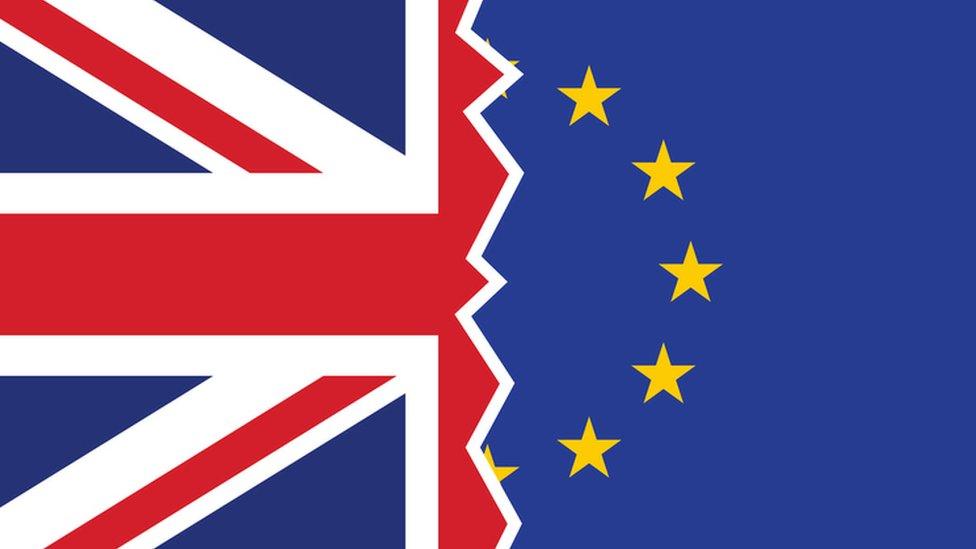
UHY Hacker Young reported that nearly a fifth of governments in the survey cut corporation tax in the previous two years. The USA has a headline rate of 41%, but it also has a lot of deductibles which reduce the effective rate.
There is that possibility of a lower tax rate drawing in profitable investment so that revenue goes up.
But playing the game of building your economy through competitively low tax invites others to do the same, and the risk is that everyone's total tax revenue will fall. In those circumstances, other taxes or spending cuts have to take up the strain.
But that question about the Scottish referendum is a reminder that the Scottish National Party argument, of lower taxes stimulating higher growth rates, has now run out of room for manoeuvre. That much had been acknowledged, though there were still hopes that Scotland could use targeted tax breaks for strategically important industries.
If Osborne's idea is implemented at Westminster, the idea of a Scottish tax rate somewhere around the Irish one would not be that distinctive.
And a competitive corporation tax cut would possibly not be a smart way of getting good terms for an independent Scotland's fast track hopes of EU membership.
It's another of those questions for the SNP in preparing for a second independence referendum: what tools would it use for growing the economy faster, and getting the economy out of the slowdown that now looms?
- Published4 July 2016
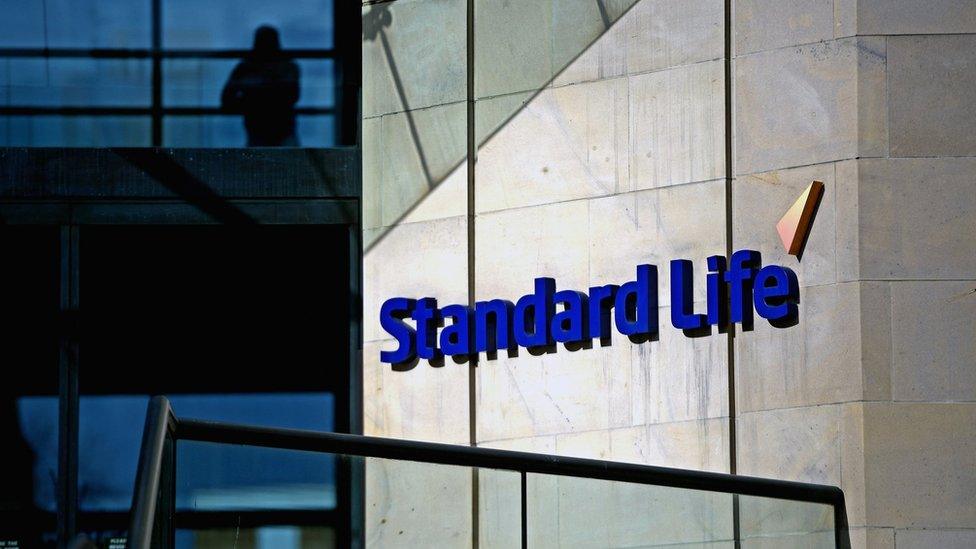
- Published4 July 2016
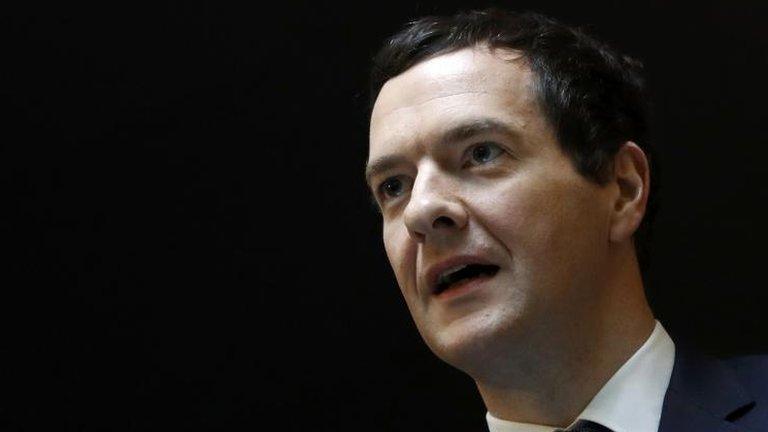
- Published4 July 2016
